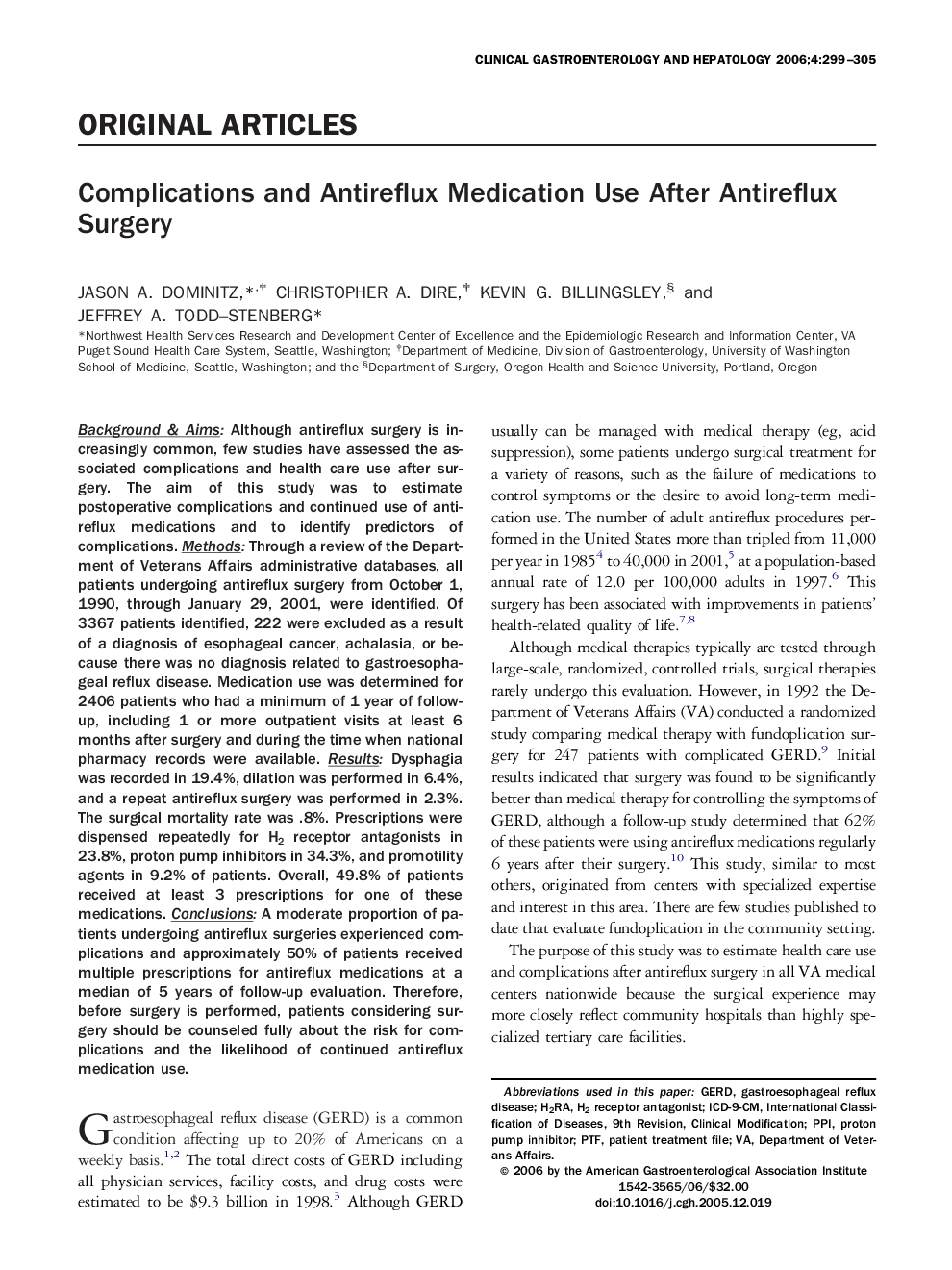| Article ID | Journal | Published Year | Pages | File Type |
|---|---|---|---|---|
| 3285878 | Clinical Gastroenterology and Hepatology | 2006 | 7 Pages |
Abstract
Background & Aims: Although antireflux surgery is increasingly common, few studies have assessed the associated complications and health care use after surgery. The aim of this study was to estimate postoperative complications and continued use of antireflux medications and to identify predictors of complications. Methods: Through a review of the Department of Veterans Affairs administrative databases, all patients undergoing antireflux surgery from October 1, 1990, through January 29, 2001, were identified. Of 3367 patients identified, 222 were excluded as a result of a diagnosis of esophageal cancer, achalasia, or because there was no diagnosis related to gastroesophageal reflux disease. Medication use was determined for 2406 patients who had a minimum of 1 year of follow-up, including 1 or more outpatient visits at least 6 months after surgery and during the time when national pharmacy records were available. Results: Dysphagia was recorded in 19.4%, dilation was performed in 6.4%, and a repeat antireflux surgery was performed in 2.3%. The surgical mortality rate was .8%. Prescriptions were dispensed repeatedly for H2 receptor antagonists in 23.8%, proton pump inhibitors in 34.3%, and promotility agents in 9.2% of patients. Overall, 49.8% of patients received at least 3 prescriptions for one of these medications. Conclusions: A moderate proportion of patients undergoing antireflux surgeries experienced complications and approximately 50% of patients received multiple prescriptions for antireflux medications at a median of 5 years of follow-up evaluation. Therefore, before surgery is performed, patients considering surgery should be counseled fully about the risk for complications and the likelihood of continued antireflux medication use.
Keywords
Related Topics
Health Sciences
Medicine and Dentistry
Gastroenterology
Authors
Jason A. Dominitz, Christopher A. Dire, Kevin G. Billingsley, Jeffrey A. Todd-Stenberg,
